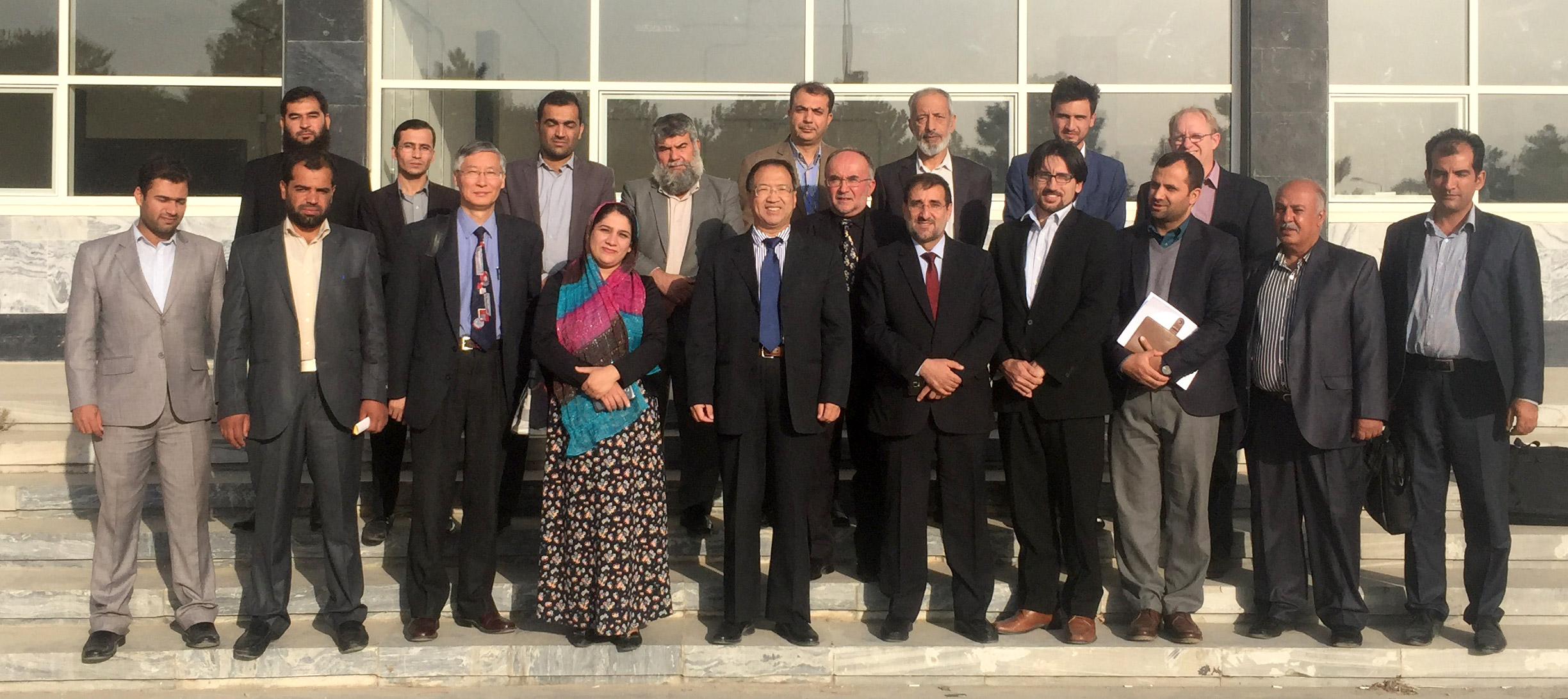
A team of civil engineering faculty recently visited Kabul, Afghanistan as part of a joint project with UNO to improve college educational programs in Kabul Polytechnic University (KPU), Afghanistan. Funded by the United States Agency for International Development (USAID), the project is intended to help improve workforce development in Afghanistan.
The project is led by Dr. Patrick McNamara, Director of the University of Nebraska Omaha International Studies & Programs, and Mr. Sher Jan Ahmadzai, Director of the Center for Afghanistan Studies. The University of Nebraska-Lincoln team is led by Dr. Junke Guo, including Drs. Dave Admiraal, Tian Zhang, John Stansbury, Yusong Li, and Jiong Hu. The project focuses on curriculum development, faculty development, and development of administration skills to increase the quality of KPU’s Master’s Degree in Hydraulics and Hydraulic Structures program.
Drs. Junke Guo, Tian Zhang and David Admiraal spent eight days working directly with the faculty of KPU, delivering presentations on teaching methods and working on course development. In Dr. Guo opinion, KPU is one of the top engineering colleges in Afghanistan, but they are looking to improve based on the examples set by the University of Nebraska and other US colleges.
“The structure of the college is different in Afghanistan,” said Guo. “Of the department’s 13-member faculty, only three have a PhD; the rest have only Masters degrees. We’re working with the faculty to develop their course content and teaching methods. We’ve already made progress; a senior faculty member of the college accepted our suggestion to change the name of his course before we left!”
Along with direct interaction with the faculty, the team is also working to implement systematic changes at KPU.
“Their administrative structure is very different,” said Zhang. “Every request for funds is submitted to the Ministry of Higher Education, from salary to office supplies. Budgets are monthly, and there’s one fund for the entire university. This is much different from UNL, where there are many funding sources and yearly budgets. We’re working with KPU to set up an administrative hierarchy in their college to improve efficiency.”
The team is also facing challenges from the lack of reliable electricity and internet connection along with outdated laboratory equipment. Because of these challenges, some testing labs at KPU have not been in operation for 30 years or more.
“Many things are different,” said Zhang. “It’s very eye opening. There’s a lack of infrastructure we take for granted in the United States. They do not have a sewer system or storm water system. The roads are paved, but there are no lines for lanes, and I only saw two stoplights in a city of six million people. The internet connection is unreliable, and there are frequent power outages. The power went out during Dr. Admiraal’s presentation!”
Over the next two years, the team is scheduled to hold two training sessions for the faculty of KPU in India and visit Afghanistan three more times.
“Improving KPU’s engineering programs will have a huge effect on the region in terms of infrastructure,” said Guo. “We’re very excited about this project. Helping them will have an international impact.”